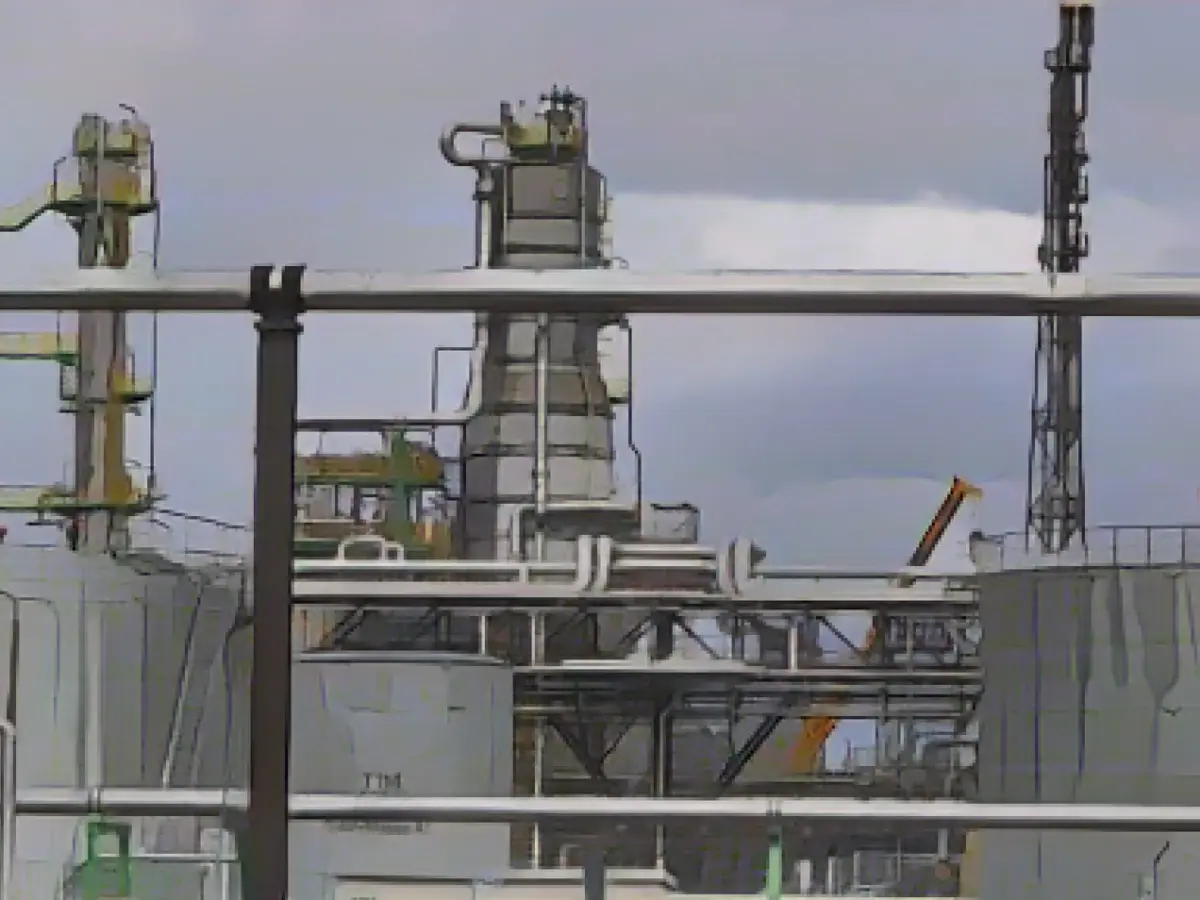Shell Exits PCK Refinery Schwedt: What Happens Next?
The PCK refinery in Schwedt, a significant industrial facility in northeast Germany, is currently in the air. The Russia sanctions have impacted the plant, which previously ran on Russian oil. With the company being largely under federal control, the future remains uncertain. But there is a resolution regarding one aspect: Energy titan Shell is parting ways as a shareholder, with the British Prax Group acquiring 37.5% of the refinery.
Officials at PCK, the federal government, and Brandenburg viewed the move, announced on Friday, as a beacon of stability for the company affecting thousands of jobs in eastern Germany and the region's petrol, diesel, and kerosene supply. According to dpa, the purchase won't affect consumers; crude oil supply to the PCK and fuel distribution in the region will continue as before.
However, the deal has not been met with unanimous approval. Critics argue that this crucial shareholding should not fall into the hands of a small British oil trader. The Prax Group, with its international trading of crude oil, petroleum products, and biofuels, is no match for Shell in terms of size or annual turnover.
Görke, a left-wing politician and PCK expert, contends that Prax will not be equipped to handle the planned conversion to a green refinery for e-fuels and hydrogen, which will cost at least 15 billion euros. Görke's proposal: the federal government should acquire Shell's shares and secure the site for the long term.
The Backstory
Shell's intentions to sell shares in PCK date back years, focusing on concentrating refinery operations at a few locations. The Austrian Alcmene Group was once thought to be the likely buyer. By 2021, the deal seemed almost foolproof, but Rosneft, a Russian state-owned company, asserting a right of first refusal nearly scuppered it.
Rosneft owned around 54% of PCK's shares via two subsidiaries, but this was jeopardized when Russia attacked Ukraine in early 2022, triggering EU sanctions. This significant blow for PCK left it reliant on tanker oil and Kazakh oil via the Druzhba pipeline.
Meeting the Buyer
The British Prax Group currently trades in crude oil, petroleum products, and biofuels at eight locations worldwide. With around 1450 employees, Prax is a far cry from Shell, a British company with over 90,000 employees and a $380 billion annual turnover.
In a statement, Prax emphasized its interest in a stronger EU foothold. Regarding the PCK refinery, it stated plans to support ongoing energy transition efforts and open opportunities for the region.
A New Future?
Initial responses in Schwedt were generally positive, albeit cautious. "Pleasure in this announcement, because it brings clarity and planning security for PCK's future, " explained PCK CEO Ralf Schairer. The Works Council added, "Our concern with Prax is that they possess an interest in securing the site and jobs."
The federal government and Brandenburg echoed similar sentiments, emphasizing the acquisition's potential benefits. However, various obstacles remain: regulatory approvals, Shell's partners' rights of first refusal, and the questionable future of Rosneft shares.
TheShell plans to complete the deal in the first half of 2024, "subject to partners' rights and regulatory approvals." Rosneft holds a 54% share, and Eni, another minority shareholder, owns 8.3%. A possible decision on Rosneft's right of first refusal could lie with the German government as the trustee, leaving future plans open-ended.
Reference
Enrichment Data:
The potential implications and challenges of the British Prax Group's acquisition of Shell's shares in the PCK refinery in Schwedt, particularly in relation to the planned conversion to a green energy facility, are multifaceted:
Implications:
- Continuity of Operations:
- Prax's involvement could ensure the continued operation of the refinery, vital for the region's energy supply and employment.
- Diversification of Ownership:
- Prax's acquisition introduces a new investor with potentially different strategic priorities, which could lead to changes in the refinery's operations.
- Financial Stability:
- Fresh capital from Prax could support the refinery's financial stability and transformation plans.
- Technological Advancements:
- Prax might bring new technologies, promoting a greener transformation.
Challenges:
- Regulatory Compliance:
- Regulatory approval of the conversion to green energy facilities comes with significant complexities.
- Technological Hurdles:
- Implementing green energy technologies may pose challenges, necessitating expertise and operational continuity.
- Public Acceptance:
- The transition to green energy might be met with public resistance if changes to operations or new technologies are introduced.
- Economic Viability:
- Green energy investments carry significant upfront costs, requiring the new technologies to be economically viable and capable of replacing fossil fuels.
- Supply Chain Diversification:
- Dependence on alternative oil sources follows the refinery's Diversification efforts, introducing supply chain stability and security concerns.
Ensuring the PCK refinery's conversion to green energy facilities while navigating these complexities will be critical for Prax's long-term success.








